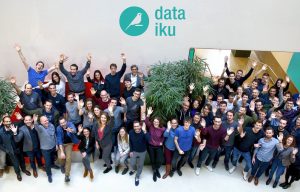Predictions 2010: Venkatesh Rao’s List
2010 looks to finally be the year the tablet emerges for consumers, or at least that is what publishers seem to be counting on as they re-design their content into tablet-friendly models and look to push their own devices into the market.
Here are five other trends we believe will take hold for web and print publishing over the next year.
1. The Rise of the Long-Form
Twitter took the fragmentation capacity of the Web to its logical end. Things can’t get much shorter. Though Posterous and other players are still trying, the focus will shift to ![]() longer form value addition. Trailmeme is an example. Other areas that will see action include sentiment analysis based services, gradual consumption services (DailyLit.com) consolidated news (Google’s Living Stories) and automated clustering.
longer form value addition. Trailmeme is an example. Other areas that will see action include sentiment analysis based services, gradual consumption services (DailyLit.com) consolidated news (Google’s Living Stories) and automated clustering.
The two are not in conflict. Long-form models will use the short-form models to drive traffic, for example by enabling Twitter-based updates when additions/changes are made. But the frenzied millisecond-cycle Web will find its complement in technology and content that operate at a slower tempo, but are still real-time and dynamic.
2. The Cambrian Explosion of Devices
From one interface (computer screen) and one type of user (human), Web content will now increasingly be consumed by an exploding proliferation of devices, ranging from smartphones and tablet touch screens to Microsoft “Surface” type interfaces, to the project-anywhere model developed by MIT media labs and both immersive (Second Life ![]() style) and non-immersive (Bumptop) type 3D. And don’t forget TiVos and gaming consoles. The visual sensory world will be augmented by a new, nascent audio interface to the Web through descendants of the Kindle’s early and clumsy audio reading software. Besides this proliferation of human-focused UIs, vastly more non-human Web users will arise, expanding the universe of bots well beyond software agents. Automobiles, airplanes and refrigerators will all join the “Internet of Things.”
style) and non-immersive (Bumptop) type 3D. And don’t forget TiVos and gaming consoles. The visual sensory world will be augmented by a new, nascent audio interface to the Web through descendants of the Kindle’s early and clumsy audio reading software. Besides this proliferation of human-focused UIs, vastly more non-human Web users will arise, expanding the universe of bots well beyond software agents. Automobiles, airplanes and refrigerators will all join the “Internet of Things.”
In response, content software technology will evolve new horizontal abstraction layers for the hosting, push and pull creation and delivery of content, that are independent of any device or user type. Above this layer, the universe of “widget” programming that bridges the gap to actual devices will evolve dramatically (including evolving industry standards), presenting users with a variety of intuitive UIs optimized to different hardware profiles.
People, or their software or hardware delegates, will be able to consume the content they need when they want, where they want, in the form they want, at the pace they want.
3. The “Website” will dissolve into the real-time Web
![]() Web services and models based on the library-like “destination” metaphor will go into decline, as the Web evolves from a “place to visit” to a river of real-time information flow. Modern Web technologies already exist as ecosystems of widgets, plugins, push delivery (RSS), email delivery and other “diffusion and repackaging models.”
Web services and models based on the library-like “destination” metaphor will go into decline, as the Web evolves from a “place to visit” to a river of real-time information flow. Modern Web technologies already exist as ecosystems of widgets, plugins, push delivery (RSS), email delivery and other “diffusion and repackaging models.”
The rise of URL shorteners lowers the need to have a site be the center of your brand. New content technologies may evolve without a central “portal” at all, or at best a very nominal portal. Much of the action in Facebook social games for instance, happens on Facebook, not on the parent sites. Xerox Trails rides this trend in one way: you can now create a “website” like trail of pages arranged in a hierarchy without owning a site at all. Instead, Web activity will center around the user, through dashboard technologies that go far beyond RSS, iGoogle or Tweetdeck.
4. The Quality/Quantity Chasm Will Deepen
![]() It is already clear that the original content ecosystem is dividing into two types of content: extremely fast-moving commodity content, and the high-quality high-effort, slow tempo content. Offline, for instance, it is the high-quality, long-form content that is resisting the decline of media the best (example: the New Yorker and The Atlantic). Online, while the recent focus has been on fast moving “programming” on sites that update dozens of times a day, there is a thriving minority sector of high quality, high effort content that achieves landmark status, long life and often gets converted to book form (from “The Cathedral and the Bazaar” to Joel Spolsky’s “Smart & Gets Things Done”). Both ends of the spectrum will thrive, with very different dynamics. It is the middle that will start to suffer: low-value added repackaged content that is neither fast/commodity/plentiful nor slow/unique/rare.
It is already clear that the original content ecosystem is dividing into two types of content: extremely fast-moving commodity content, and the high-quality high-effort, slow tempo content. Offline, for instance, it is the high-quality, long-form content that is resisting the decline of media the best (example: the New Yorker and The Atlantic). Online, while the recent focus has been on fast moving “programming” on sites that update dozens of times a day, there is a thriving minority sector of high quality, high effort content that achieves landmark status, long life and often gets converted to book form (from “The Cathedral and the Bazaar” to Joel Spolsky’s “Smart & Gets Things Done”). Both ends of the spectrum will thrive, with very different dynamics. It is the middle that will start to suffer: low-value added repackaged content that is neither fast/commodity/plentiful nor slow/unique/rare.
5. Social Filtering will start to displace Search as the primary driver of monetizable content
![]() Bloggers already know that visit for visit, sources like aggregators, Twitter and Facebook are more valuable in financial terms than organic traffic delivered by search, due to the higher relevance of the leads, an effect of the social filtering effects of such sources. As the pressure to monetize online content increases, search will become less important. The Google-Murdoch type debate will diminish in importance relative to Facebook-Murdoch or Twitter-Murdoch. While SEO will still remain important for sploggers and repackagers, a parallel discipline of WOMO (word-of-mouth optimization) will arise.
Bloggers already know that visit for visit, sources like aggregators, Twitter and Facebook are more valuable in financial terms than organic traffic delivered by search, due to the higher relevance of the leads, an effect of the social filtering effects of such sources. As the pressure to monetize online content increases, search will become less important. The Google-Murdoch type debate will diminish in importance relative to Facebook-Murdoch or Twitter-Murdoch. While SEO will still remain important for sploggers and repackagers, a parallel discipline of WOMO (word-of-mouth optimization) will arise.
[Editor’s Note: Venkatesh is a new contributor to the SiliconANGLE community, though he’s been often cited by other authors at the site. He works as a product manager for the Xerox Trails project at Xerox. See his member page for more information. –mrh]
A message from John Furrier, co-founder of SiliconANGLE:
Your vote of support is important to us and it helps us keep the content FREE.
One click below supports our mission to provide free, deep, and relevant content.
Join our community on YouTube
Join the community that includes more than 15,000 #CubeAlumni experts, including Amazon.com CEO Andy Jassy, Dell Technologies founder and CEO Michael Dell, Intel CEO Pat Gelsinger, and many more luminaries and experts.
THANK YOU









